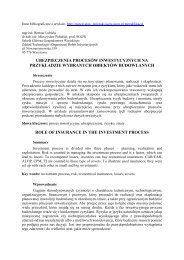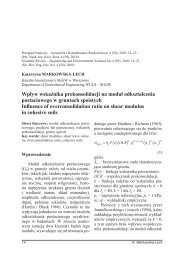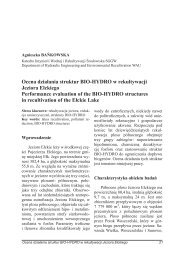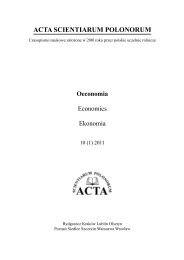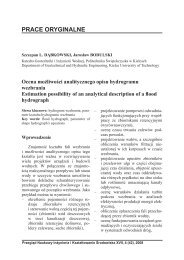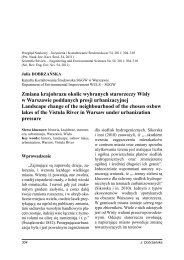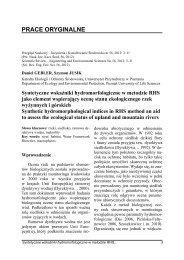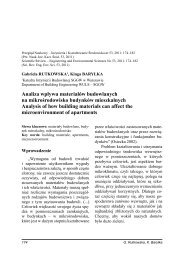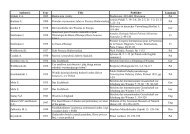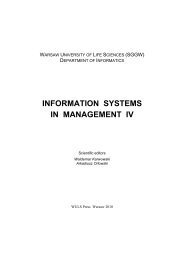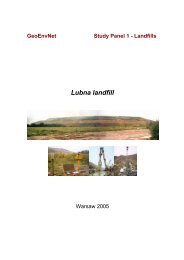Acta Scientiarum Oeconomia 9 (1)
Acta Scientiarum Oeconomia 9 (1)
Acta Scientiarum Oeconomia 9 (1)
You also want an ePaper? Increase the reach of your titles
YUMPU automatically turns print PDFs into web optimized ePapers that Google loves.
<strong>Oeconomia</strong> 9 (1) 2010, 49–59<br />
THE ROLE OF TRADE WITH THE EU<br />
IN LIBYAN ECONOMY DEVELOPMENT<br />
Mahmud A. Geheder, Mohamed S. Moussa<br />
University of El Fateh, Tripoli, Libya<br />
Emhemed R. Shnibesh, Abdulhamid A. Yousef<br />
7th April University, Tripoli, Libya<br />
Abstract. The paper is based on an economic analysis of the Libya’s foreign trade during<br />
the period 1970–2006, with special reference to the trade process between Libya and the<br />
EU. In addition, the paper investigates the process of adjustment of Libyan imports from<br />
the EU, in the level of domestic economic activities (real income), the consumer price<br />
index (CPI), and the exchange rates of the Libyan dinar. The aim is to provide estimates of<br />
the aggregate demand of Libya’s imports from the EU over the period, applying standard<br />
econometrics techniques complemented by appropriate diagnostic tests based on recent and<br />
by now widely used dynamic modeling and cointegration techniques. As well as the paper<br />
tends to estimate a long run of the independent variables elasticity stated above for Libya’s<br />
imports from the EU. The findings suggest more economic cooperation through bilateral<br />
relations, improving the investment environment in the Libyan market and supporting<br />
further economic cooperation through the Euro-Mediterranean Process and suggest the<br />
need for trade agreement with the EU.<br />
Key words: trade, economic development, econometrics, EU, Libya<br />
INTRODUCTION<br />
Libya’s dependence on its oil export revenues has largely characterised the development<br />
process since the sixties. A number of different phases is to be distinguished: the policies<br />
of the Kingdom, the surplus re-distributive policies under the revolutionary government<br />
until 1981, the US trade boycott and the declining revenues during the eighties, the UN<br />
sanctions and further deteriorating growth prospects during the 90 and presently the<br />
opening-up of Libya after lifting the UN sanctions.<br />
Adres do korespondencji – Corresponding authors: Abdulhamid A. Yousef, Mohamed S. Moussa,<br />
University of El Fateh, Tripoli – Libya, Emhemed R. Shnibesh, 7 th April University, e-mail:<br />
hhaamed@yahoo.com, P. Box: 13514 Tripoli – Libya




